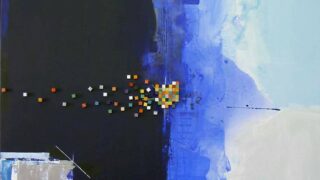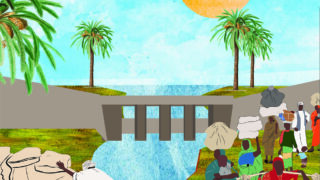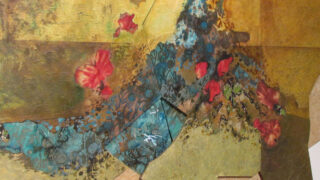During a period of only eight weeks, which came to a close at the end of August, South Sudan President Salva Kiir undertook many bold steps to consolidate power in the face of his rivals in the government, the army and the Sudan People's Liberation Movement (SPLM). These steps are aimed at addressing the fragmentation that has affected these institutions, but — more importantly — they are aimed at strengthening Kiir's position until the party's candidate for the 2015 presidential elections becomes clear.
This past June, Kiir carried out his first surprise move when he removed both Deng Alor, the minister of cabinet affairs, and Kosti Manibe, the minister of finance, from their posts. He was instrumental in placing them under investigation on corruption charges for their involvement in a deal worth $8 million supplying equipment to protect government institutions. The following month, Kiir dissolved the government and removed his deputy, Riek Machar, who had worked with him as vice president following the signing of the peace agreement in 2005, and then after the country's independence in 2011. Kiir announced the composition of a smaller government, comprising 18 ministers instead of 29.
The dissolution of the government was accompanied by Kiir suspending the powers of the secretary general of the SPLM, Bagan Amum, who is a party strongman and led negotiations with Khartoum. Amum was referred to investigation on the grounds that he called for violence and criticized Kiir's leadership of the movement. Amum was also forbidden from talking to the media and subject to a travel ban until the investigation is complete. In another move, Kiir dismissed the controversial governor of the Unity State, Taban Deng, from the post to which he was elected. Unity is a strategically important state because it produces oil and borders Sudan. These changes were preceded by Kiir's decision, at the beginning of the year, to force more than 100 upper and middle level figures in the People's Army to retire. These included ministers who had been in the military since the days of the civil war.
Targeting three centers of power
These changes led to curbing the main centers of power, presented by what is known as the Amum-led "Garang Boys" group. This group belongs to the Abyei region, which is disputed between Sudan and South Sudan, and led by Alor and army generals. This was indicative of old conflicts, which became evident during the SPLM conference held in 2008. At the time, the party nearly split up, since Amum and Machar were determined to compete with Kiir over leadership of the movement. Whoever won leadership of the party would automatically become the party's candidate for the elections that were to take place two years later, following the referendum on self-determination. Thus, the winner would be the one who leads the country to independence.
Friends of the movement, led by Roger Winter, an American who had previously worked with USAID, intervened with two suggestions: to focus on the referendum, and uniting around it to achieve independence. Winter suggested that things remain as is, meaning Kiir stays as the president of the SPLM and the government, Machar serves as vice president, and Amum secretary general of the party. This is what actually happened, but it only froze the conflict and did not end it.
In April 2013, Kiir froze the work of the special committee for national reconciliation that was headed by Machar, saying that the committee's activity was only in the interest of Machar's political ambitions and goals of leadership. The deterioration of the internal political situation and the spread of violence — particularly in the state of Jonglei, which has been plagued by tribal conflict and political intervention — led to the displacement of about 100,000 people and left thousands dead. This led the country's Western friends (namely the US, Britain, France, Canada, the Netherlands, and Norway) to issue a joint statement, the first of its kind, expressing their concern about growing violence and political obstruction. At one point, members of the US National Security Council held a session two months ago, attended by media outlets, to draw the world's attention to what is happening in Jonglei.
The various dimensions of this political obstruction became clear when it was announced that the general conference of the SPLM would be postponed. The conference was originally scheduled to take place last May, and no new date has been specified for the meeting. This signifies some sort of stability, and shows that Kiir is not worried about losing the reins of power. Kiir had already proposed to Machar and his supporters that they establish a new party, but they preferred to work within the SPLM if possible, as the party still enjoys widespread respect, given that it achieved independence for the country.
The steps taken by Kiir constitute a comprehensive change of the political map. He has succeeded thus far, relying on his position as the leading figure in the state, the SPLM and the army. This is a position he inherited from the SPLM's late leader, Dr. John Garang. It is also worth noting that Kiir hails from the Dinka tribe, the largest tribe in South Sudan and one of the largest on the entire African continent. In addition to all of this, Kiir has benefited from the interim constitution of South Sudan, which was approved by all of the SPLM's leaders and passed in parliament. The constitution gives the president extraordinary powers, including even the right to dismiss elected governors and ministers and to dissolve parliament. It has been widely reported that Kiir warned MPs that they should endorse his selection for a new vice president, James Wani Igga, or otherwise he would dissolve parliament, which still has two years left in its term, and leave its members to "wander the streets."
The threat to dissolve parliament appears to have been in response to the latter’s objection to Kiir’s nominee for the Ministry of Justice in the new government, Telar Deng, and impeding his appointment. This is seen as a successful blow for the groups that oppose Kiir.
Expanding the political base
Kiir, meanwhile, was disatisfied at having merely excluded his opponents: he sought to bolster his political base by attracting new blood, as exemplified by the appointments he made in the condensed government and by his newly appointed vice president, Igga, who was the speaker of the parliament. Igga's own political sway is represented by his origins in the southern Equatoria states, having been born near the state capital of Juba. He is also seen as one of the SPLM's historical leaders and one of the first students from the South to study in Cairo following the first peace agreement signed in 1972. This agreement was entered into by Gaafar Nimeiry with the southern rebels at the time. Igga received a degree in economics from the University of Cairo.
The new government included a Muslim for the first time with the appointment of Abdullah Deng Nhial as Minister of the Environment. He was one of the most prominent leaders in the Popular Congress Party led by Dr. Hassan al-Turabi before the secession of South Sudan and was the party’s candidate for presidential elections in 2010. Nhial’s appointment was regarded as a message to drum up support for Muslims in the South as they make up at least a quarter of the population, while they had no official presence of mention in the constitution. The government also included a minister of health, Dr. Riek Gai, one of the deputies to President Omar al-Bashir in the National Congress Party, and head of the Southern Sudan Council before secession. He is seen as one of the biggest critics of the SPLM.
Ideology and interests
Criticizing the new formation of the government, some Amum supporters said that the peace agreement was based upon the idea of a single state with two regimes, or in other words adopting Sharia law in the North and secularism in the South. Meanwhile, the new government looks more like one regime in two states. They point out that the conditions in South Sudan have become similar to those in the North in terms of political, security and executive control by a group from the ruling party of matters.
Khartoum did not hide its complacency with these changes, especially given the absence of Amum, Alor and Taban Deng from the circles of executive action. This is supposed to reflect positively on the security situation and cut off aid to Sudan Revolutionary Front (SRF) rebels opposed to Khartoum. It is also expected to get relations moving between the two countries based on shared interests and to derive benefits from trade and economic exchange. Sudan could export traditional goods such as corn, onions, salt among other things, providing it with $2 billion of revenue per year. This could open the door to cultural and social exchange, overcoming the political secession between both countries.
Two things have occurred as a result of all of this. First was the visit made by Kiir to Khartoum on Sept. 5; after the changes made in his country’s political scene, many had been betting that the visit would be postponed. The second was the announcement during the visit of Kiir’s agreement with Bashir to extend the flow of oil exports from South Sudan. The final deadline to close off the pipelines had been Sept. 6. This indicates Khartoum’s desire to support Kiir in the face of his opponents and to offer financial resources necessary toward this end. Last month, Juba received $630 million in oil sales, the largest amount it has acquired since the beginning of last year when oil production stopped in the South. Khartoum later refused to allow oil to pass through its borders unless security relations were settled between the North and South.
The Abyei issue
The prospects of improving the two countries’ relations are still clouded, as shown in the referendum proposed by the African Union (AU) for next month to determine the status of the Abyei region — whether it is part of South Sudan or if it will remain part of Sudan. Sudan never agreed to the AU proposition to begin with, as it seems adamant that any step taken regarding Abyei must occur with the approval of both sides, which has not yet happened.
The Abyei issue, despite its small surface area and population, has been prioritized in defining the relationship between Juba and Khartoum because of the influence its residents exert within the leadership of the movement, such as Deng Alor. After Alor’s dismissal from his position, however, and his subjugation to realizing and bolstering Kiir’s powers in facing his political opponents, it has become a question of to what extent can Kiir curtail the Abyei issue as a point of controversy between the countries without becoming an indicator of their relations in all other matters. Kiir will, however, face accusations that his last steps have made the South less obstinate in its position on the Abyei issue.
If Kiir’s goal as president has been to reinforce his own authority, the shortest path is to guarantee the flow of oil. This may come back to him with financial resources that secure his political steps and offer increased prospects for his new government so that citizens might feel as though some change has occurred. This requires reassuring Khartoum in it security concerns and that Juba is not relying on rebels from Sudan loyal to the SRF, most of whom have former ties to the SPLM. So, it seems as though both Juba and Khartoum are in need of each other, which may open the door for reciprocal concessions.
Translated by Al-Monitor



